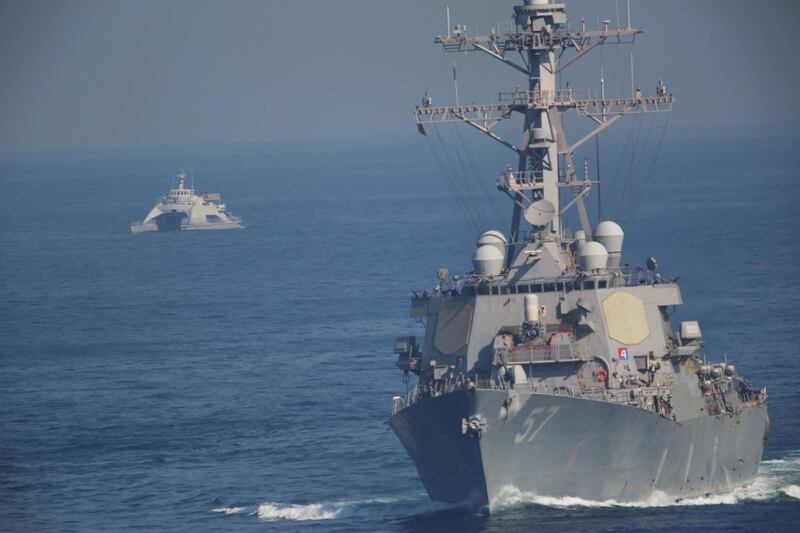Iran and Russia are preparing to hold joint naval exercises in the Caspian Sea, including rescue and anti-piracy drills, according to the commander of the Iranian navy.
The two countries held naval drills in the Caspian Sea before, including in 2015 and 2017. Iran and Russia are already close allies, particularly in Syria where they both back President Bashar Al Assad in the country’s civil war.
“Tactical, rescue and anti-piracy war games between Iranian and Russian naval forces are being planned and will be implemented in the near future,” Rear Admiral Hossein Khanzadi told Iran’s Mehr News Agency.
“The co-operation between the naval forces of Iran and Russia ... has been strengthened in recent years,” he said.
He offered no timetable for the drills.
Adm Khanzadi repeated Iran’s opposition to the military presence of any country from outside the region in the Caspian Sea, saying: “All countries around the Caspian have the same approach.”
He said that countries bordering the landlocked sea between Asia and Europe would counter the presence of any “transregional states”.
The opposition to the military presence of outside states in the Caspian is part of a convention signed last year by the countries bordering the sea.
This agreement between Russia, Iran, Azerbaijan, Kazakhstan and Turkmenistan was meant to define the legal status of the Caspian but some issues, such as marking territorial waters, remained unresolved.
Besides calling for more talks to resolve the division of the Caspian, Iranian President Hassan Rouhani demanded that the exclusion of any foreign military presence should also apply to the shipment of military cargoes. Although he did not offer any examples, he was thought to be referring to a US arrangement for shipping cargo between Azerbaijan and Kazakh ports.
Russia said last year it was committed to deepening ties with Iran despite a US decision to quit an international nuclear deal and reimpose sanctions on Tehran.
The new drills mean that Moscow and Tehran will boost their co-operation at sea. They are already closely connected through co-operation in Syria. Iranian and Russian officials have shuttled between Tehran and Moscow in recent years, boosting a relationship that previously had little history.





